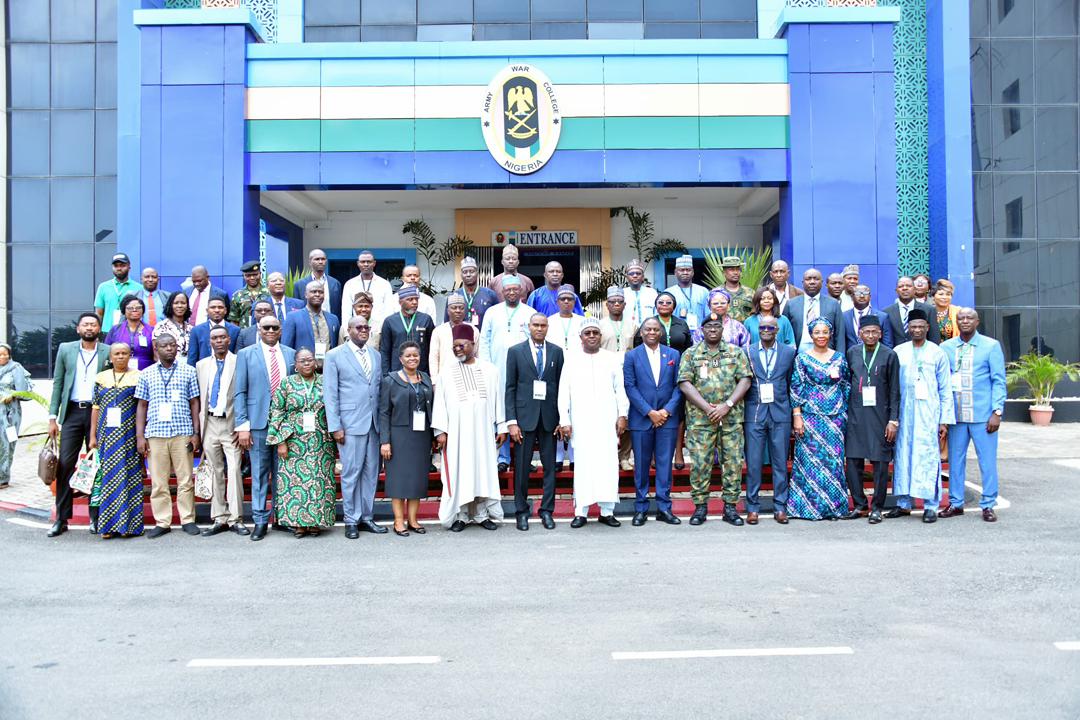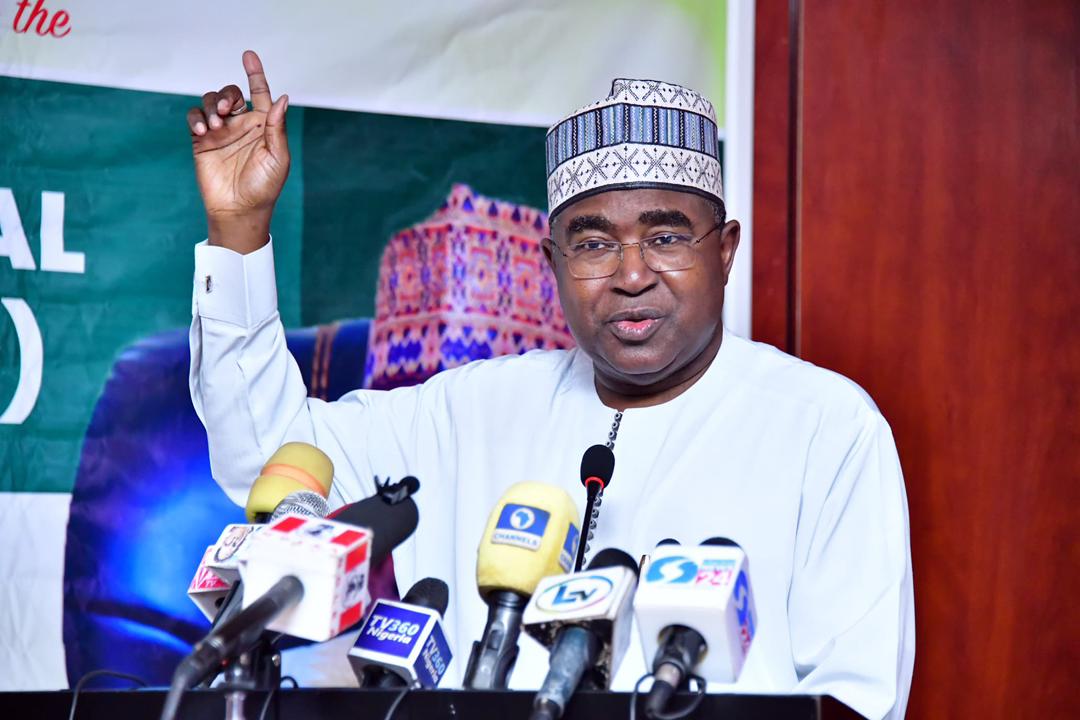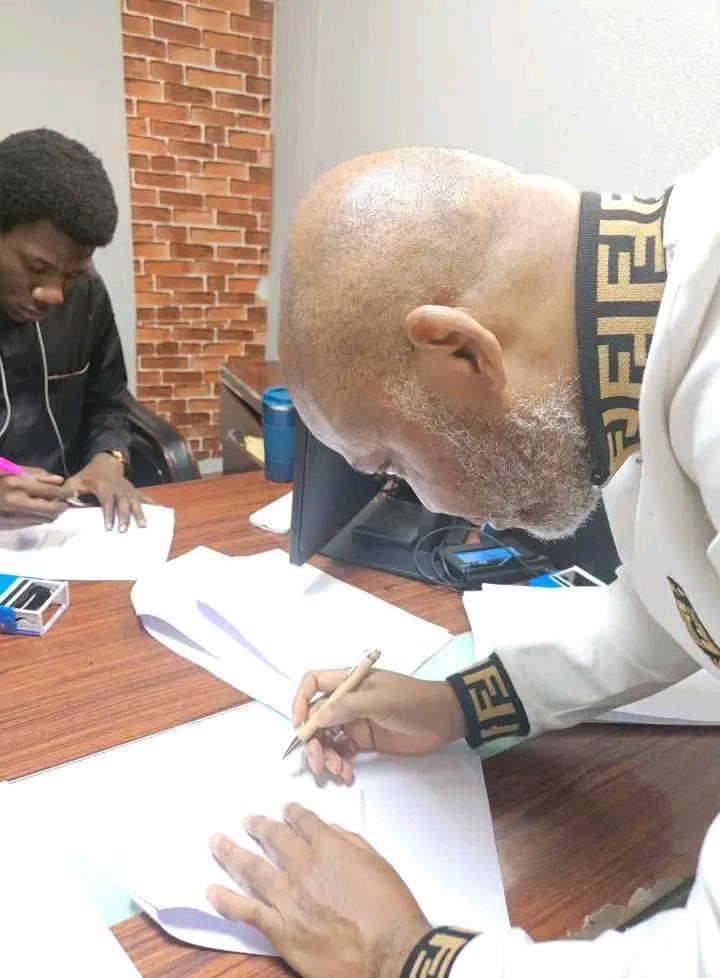AMENDMENT OF NDLEA ACT WILL BOOST NIGERIA'S DRUG CONTROL EFFORTS - FAGBEMI, MARWA

The Minister of Justice and Hon. Attorney General of the Federation, Prince Lateef Fagbemi, SAN, has expressed the hope that the recent amendment of the NDLEA Act by the National Assembly will bolster Nigeria’s drug control efforts when eventually signed by President Bola Tinubu.
Lateef Fagbemi shared his expectations in his remarks during the opening ceremony of the Inter-Ministerial Committee on Drug Control meeting in Abuja on Wednesday, May 28, 2025.
The Justice Minister noted that the NDLEA had in the past four years witnessed unprecedented efforts and achievements, including multiple arrests and seizures, convictions, as well as elaborate evidence-based drug demand reduction interventions, using the War Against Drug Abuse (WADA) social advocacy platform to sensitize communities on the dangers of drug abuse.

He said the NDLEA has sustained the fight with renewed energy and vigour, giving hope to the once hopeless situation.
“The Federal Ministry of Justice has worked together with the NDLEA to ensure that our national legal system effectively supports the drug control efforts of the agency. We are at the last lap of finalizing the amendment of the NDLEA Act, which will significantly enhance the organizational capability of the agency to control the menace of substance abuse and illicit drug trafficking in Nigeria. The Ministry is also providing appropriate support in the area of proceeds of crime management, essential to dismantling the financial networks of drug traffickers.”
While acknowledging the contributions of other law enforcement agencies and stakeholders to the country’s drug control efforts, the minister who was represented by the Director, Public Prosecution of the Federation, Mr. Mohammed Abubakar, noted that “the work of this Inter-Ministerial Committee has been crucial in coordinating a whole-of-government approach to this top burner issue. By bringing together critical stakeholders, we have been able to develop and implement more comprehensive and balanced strategies, applying the collaborative spirit which the NDCMP promotes.”
He commended state governments that have established their own drug control committees and the civil society organisations working at the community levels to ensure more holistic outcomes. He charged the gathering to expand prevention programmes to address the root causes of drug abuse, targeting the youths, women, the vulnerable and marginalized persons in communities. “Let us leave this meeting with renewed commitment to protecting our youth, securing our communities, and building a healthier, safer Nigeria for generations to come. The commitment made by NDLEA, the IMC and other stakeholders, holds the promise for a drug-free Nigeria”, he added.
In his welcome remarks, the Chairman/Chief Executive Officer of the National Drug Law Enforcement Agency, Brig Gen Mohamed Buba Marwa (Rtd) also expressed similar views about the impact of the amendment of the NDLEA Act by the National Assembly.
Marwa said despite the funding challenges that affected the full implementation of the National Drug Control Master Plan (NDCMP 2021–2025), the Agency remained undeterred in the pursuit of its goal.
“Instead, we stay resolute, drawing strength from our shared vision, commitment, and collective responsibility to overcome this limitation. Encouragingly, certain developments promise to bolster the achievement of our objectives. One such step is the amendment of the NDLEA Act, which is expected to significantly strengthen the Agency’s institutional capacity in drug supply reduction. I am pleased to inform this esteemed assembly that the Amended Act has been passed by the National Assembly and is currently awaiting Presidential assent.”
While charging all stakeholders to redouble their efforts, the NDLEA boss said “I urge us all to renew our energy and resolve to deliver the impact and value needed to confront Nigeria’s evolving and multifaceted drug challenges. Let us bring our voices, passion, and optimism to bear in our deliberations. May we remain open and forthright in pursuit of our shared goal: the enhancement of health and security for all residents of Nigeria, in line with the aspirations of the NDCMP 2021–2025.”
In his assessment of major programmes implemented across the strategic pillars of the NDCMP in 2023 and 2024, Marwa said “I can confirm that we have collectively made commendable progress on the Fourth National Action Plan, in comparison with previous iterations.
"Under the Supply Reduction pillar, our operational efforts and strategic offensives led to the arrest of 31,334 drug offenders, of whom 6,839 were convicted. We also recorded the seizure of 4,333,636.9 kilograms of assorted illicit drugs and undertook the destruction of 426.46724 hectares of cannabis farms.
“Under the Drug Demand Reduction strategic pillar, we provided counselling and rehabilitation services to 19,033 individuals. By accelerating our WADA sensitisation activities across states, local government areas, wards, and communities, we have been able to intentionally disseminate awareness of the dangers of drug abuse to diverse population groups. This has, in turn, fostered a sense of shared ownership and collective commitment in the national effort to curb substance abuse, trafficking, and proliferation across the country.”
Also speaking at the ceremony, UNODC Country Representative, Cheikh Ousmane Toure represented by Dr. Akani Ibanga said Nigeria stands at the crossroads of public health and security sector when it comes to the drug response, adding that “the urgency of the mission that we have today cannot be overstated. Drug use, as we know, is associated with various things from health to safety to productivity to cohesion and, in fact, to how we respond at the level of our community.”







